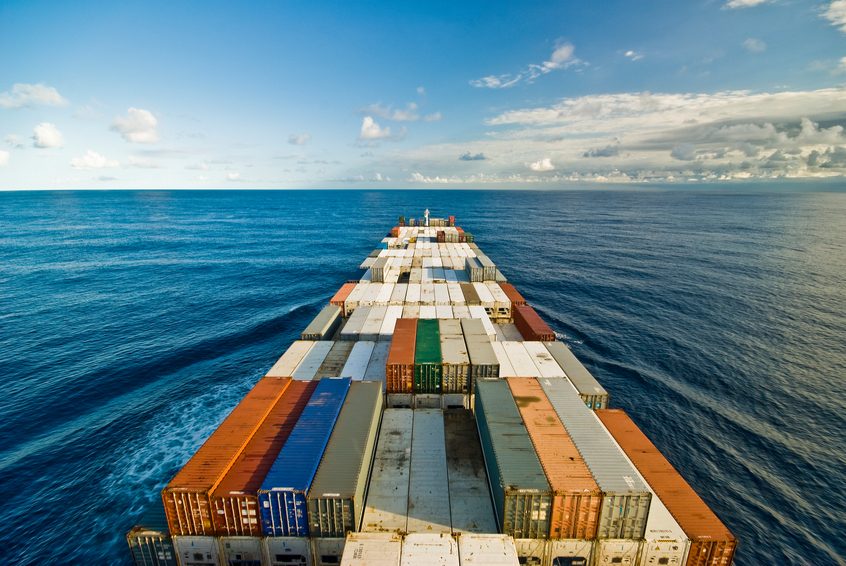September 21, 2016 | Industry Insights
Risk Management Guidance for Transportation Intermediaries in the Wake of Hanjin Bankruptcy

When the world’s seventh largest shipping company, the Korean company Hanjin Shipping, went bankrupt, it sent the transportation and global supply chain industries scrambling to protect their cargo. It’s estimated there are around 400,000 containers (the total capacity of the Hanjin fleet is estimated at 600,000 TEUs) with goods that are stuck on board the Hanjin ships.
There are many moving parts as a result of the Hanjin bankruptcy that affect freight forwarders and logistics operators who entrusted their shipments to carrier, including cargo being seized, ships being held at different ports waiting for judiciary sentences, ports and terminals owed fees or services to Hanjin ships on credit, and so on. For example, the Suez Canal has not been paid the passage tolls and won’t let Hanjin ships through. Moreover, freight rates have risen as other shipping companies have filled in a few days the gap left by Hanjin on the transpacific route.
In the meantime while events still unfold, Roanoke Trade in an effort to assist our logistics clients is providing a FAQ sheet that includes proactive measures you can implement to protect your company and the interests of your clients. We have also included Q&As on the FAQ sheet on how insurance will respond to the Hanjin incident and what exposure to liability you may have. We recommend that you review this carefully and call us if you have any questions and require further clarification about your specific situation.
Some of the proactive measures you should be taking include:
- Assess all shippers’ cargo moving under Hanjin bills of landing and on board Hanjin vessels via Vessel Sharing Agreements (VSAs).
- Contact your clients in writing of your findings and reference your terms and conditions of service.
- Advise your clients to contact their cargo insurance provider of any cargo on board Hanjin ships.
- Remind shippers that the Bill of Lading is a binding contract and that they are bound to the carrier’s terms and conditions.
- Proceed with caution when extending credit to clients for additional charges that may be accrued on moving Hanjin cargo as the client may not want to pay.
- Pay close attention to uninsured cargo or low-value freight as they may represent the largest risk of abandonment. A cargo insurance policy will not cover abandonment of cargo.
- At a minimum, have your clients agree in writing to pay the additional costs such as storage, demurrage and onforwarding.
- Make sure you are aware of your obligations to import freight that may be subject to vessel diversions.
Each day, we are getting a more complete picture of the impact the Hanjin bankruptcy is having on transportation intermediaries and will continue to keep you updated in our Emerging Matters page. To talk to a Roanoke Trade professional about your insurance concerns, please contact us at 1-800-ROANOKE (800-762-6653). You can also email us at infospot@roanokegroup.com.
The Hanjin situation has underscored the importance of partnering with high quality service providers throughout the supply chain who maintain not only the expertise but also the financial stability required to support your ongoing business. Roanoke Insurance Group has been serving the logistics & transportation community since 1935 and our affiliation with the Munich Re. organization provides us with extensive resources. Further, Roanoke endeavors to work with only the highest quality insurers while constantly monitoring their financial status and advising our clients of any potential concerns.





